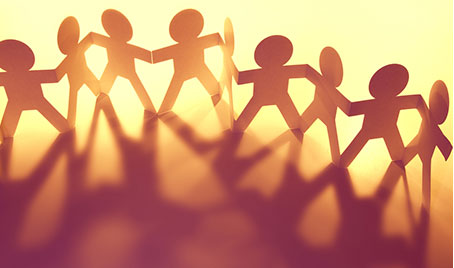Find Help & Support

How can I access help?
If you are a Saskatchewan resident, you are eligible to attend programming for free under the Sask Health continuum of care. Recovery from an eating disorder is possible! The first step is recognizing that you’re struggling and you are not alone. Acknowledging that you have an eating disorder can be very difficult, so if you recognize you have a problem, you’re already on your way to getting better. Contact us or submit the your intake application forms today. * Unfortunately, we are not accepting out of of province applications at this time for our onsite programs or virtual retreat programs. Contact National Eating Disorder Information Center to get a listing of help in your area! *

How can I refer someone?
Please give us a call to discuss referring a patient to us. We are able to accept patients with disordered eating and diagnosed eating disorders. Participants are required to be medically stable in order to attend our onsite programs. We are not a medical facility. Those struggling with an eating disorder are able to attend the initial stages of programming without a referral. Saskatchewan residents are able to attend programming free of charge under the Sask. Health continuum of care. Participants are able to self-refer for retreats and will need Part B and C completed for modules. Looking for resources to use to get your patients started on the road to recovery? Check out this Eating Disorder Tool Kit for Primary Healthcare Professionals.

How can I support a friend or loved one?
It is usually very difficult for people with eating disorders to get better on their own. It is important that you find professional help and support for your loved one as soon as possible. Eating disorders are serious medical and psychological problems. Parents, siblings, and close friends play a significant role in guiding and supporting others. In many cases, individuals with eating disorders cannot recognize a need for help in themselves, and it takes a strong, caring individual to reach out. Most importantly, you need to know that there is hope. Recovery can be difficult — but it is possible. Feel free to contact us for support and information on how to support or to request more information. Consider attending a "Supporting Your Loved One with Eating Disorder Recovery" online 2-day workshop. These dates are scheduled intermittently throughout the year and a new self-paced course is coming soon!
Take Our Quiz
Take our quiz, to help determine if you or a loved one might need support. Respond honestly to these questions.
- Do you eat privately, afraid that someone will know just how much you eat?YESNO
- Do you constantly think about food, weight or body image?YESNO
- Do you have difficulty concentrating because of those thoughts?YESNO
- Do you worry about what your last meal is doing to your body? YESNO
- Do you experience guilt or shame around eating? YESNO
- Do you count calories or fat grams whenever you eat or drink? YESNO
- Do you feel “out of control” when it comes to food? YESNO
- Do you binge eat twice a week or more? YESNO
- Do you still feel fat when others tell you that you are thin? YESNO
- Do you obsess that your stomach, hips, thighs, or buttocks are too big? YESNO
- Do you weigh yourself several times daily? YESNO
- Do you exercise to lose weight even if you are ill or injured? YESNO
- Do you label foods as “good” or “bad”?YESNO
- Do you vomit after eating? YESNO
- Do you use laxatives or diuretics to keep your weight down? YESNO
- Do you severely limit your food intake? YESNO
- Do you feel "out of control" when it comes to food? YESNO
- Do you feel powerful/invincible when you restrict food intake? YESNO
- Is your eating behaviour affecting your relationships or impacting your employment? YESNO
- If you answered "Yes" to any of the questions, your attitudes and behaviours around food and weight should be addressed so that you can get honest feedback and advice on what to do next. Contact Us